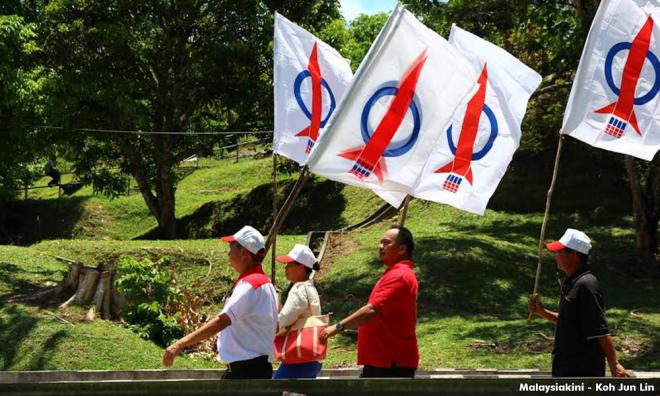
Chin Huat chat #3: DAP has much to do to move beyond Chinese leadership
In the formative years of Malayan and Malaysian development, the founding fathers somehow thought it was a good idea to retain racial, religious and regional divisions when it came to political parties.
What might have worked in the earlier years after Merdeka soon proved itself to be a root cause of a form of politics that was far removed from ideas and innovation, but fixated on communalism of the basest sort.
Sadly, even parties that present themselves as multi-racial often fail to break through beyond a core following. That’s why DAP, a party of 55 years standing and currently the party with the most number of MPs in the Dewan Rakyat, is still viewed by many as representing the Chinese minority rather than all races.
After all, only one of its 42 MPs is a Malay and more than 80 percent of the party’s central leadership is Chinese. The former figure contrasts very poorly with that other large multi-racial party, PKR, whose 38 MPs are equally split between those of Malay and non-Malay ethnicities.
And while DAP performed very well in the last general election (winning 42 out of 47 parliamentary seats and 101 out of 104 state seats contested), its failure to break through beyond its typically urban Chinese-dominated communities suggests that the party is reaching the limits of its potential.
Political analyst Wong Chin Huat is one who feels that DAP’s journey thus far is a reflection of society’s aspirations and frustrations.
“To put it more bluntly, parties represent the divisions in society. The word 'party' comes from 'part', which is a division. They vie for representation in the legislature to either form government and implement certain policies, or to check on the government and its policies.
“To win seats and power, parties adjust their ideological or policy positions to build the largest possible coalition of voters without losing its core.
“DAP built up its base from disenfranchised Chinese and Indians since 1966, benefiting from the latter’s frustration and anger with MCA, MIC and Gerakan. It would not have survived had it abandoned its support for minority rights, in religion, language, culture, economy and politics,” Wong told Malaysiakini.
READ MORE: Chin Huat chat #1: Dr M wanted presidential power until dying
What might have worked in the earlier years after Merdeka soon proved itself to be a root cause of a form of politics that was far removed from ideas and innovation, but fixated on communalism of the basest sort.
Sadly, even parties that present themselves as multi-racial often fail to break through beyond a core following. That’s why DAP, a party of 55 years standing and currently the party with the most number of MPs in the Dewan Rakyat, is still viewed by many as representing the Chinese minority rather than all races.
After all, only one of its 42 MPs is a Malay and more than 80 percent of the party’s central leadership is Chinese. The former figure contrasts very poorly with that other large multi-racial party, PKR, whose 38 MPs are equally split between those of Malay and non-Malay ethnicities.
And while DAP performed very well in the last general election (winning 42 out of 47 parliamentary seats and 101 out of 104 state seats contested), its failure to break through beyond its typically urban Chinese-dominated communities suggests that the party is reaching the limits of its potential.
Political analyst Wong Chin Huat is one who feels that DAP’s journey thus far is a reflection of society’s aspirations and frustrations.
“To put it more bluntly, parties represent the divisions in society. The word 'party' comes from 'part', which is a division. They vie for representation in the legislature to either form government and implement certain policies, or to check on the government and its policies.
“To win seats and power, parties adjust their ideological or policy positions to build the largest possible coalition of voters without losing its core.
“DAP built up its base from disenfranchised Chinese and Indians since 1966, benefiting from the latter’s frustration and anger with MCA, MIC and Gerakan. It would not have survived had it abandoned its support for minority rights, in religion, language, culture, economy and politics,” Wong told Malaysiakini.
READ MORE: Chin Huat chat #1: Dr M wanted presidential power until dying
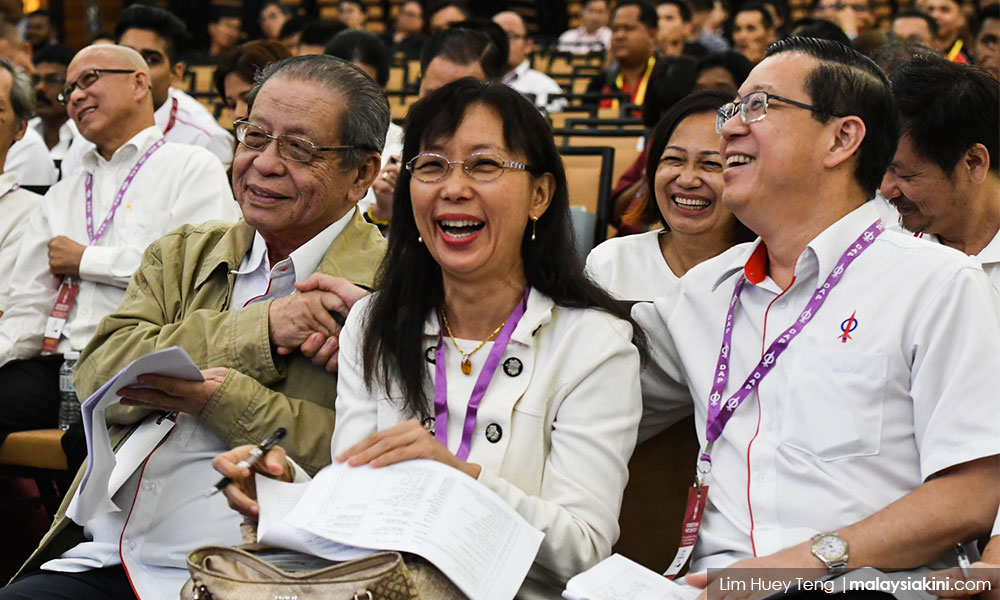
One of the odd things about the party is that, internationally, DAP has always belonged to social-democratic international associations making it a sister party of the UK’s Labour Party and scores of other moderate left-wing parties that have built up welfare states in countries as far-flung as Sweden and New Zealand.
However, with the exception of senator Liew Chin Tong and Pasir Pinji assemblyperson Howard Lee, very few leaders publicly identify themselves as social democrats.
Instead, party rallies are much more likely to showcase strident Chinese rhetoric from the likes of Nga Kor Ming and, until recently, the notoriously pro-China ‘Superman’ Hew Kuan Yau, while even party functions tend to alienate non-Chinese with lengthy detours in Mandarin.
Are they, in reality, a Chinese-rights party pretending to have a social-democratic ideology then?
Wong says that instead of explicitly advocating for Chinese ethnonationalism, DAP has adopted social democracy as its ideology to keep a more universalist outlook and wider appeal.
“From a Malay nationalist perspective, calling for equal citizenship – a Malaysian Malaysia – is already chauvinist.
“However, within its Chinese and Indian ground, distrust of the Malay-dominated state and bureaucracy naturally makes DAP shy away from advocating more government’s interventions in the economy and society, which is core to social democracy.
However, with the exception of senator Liew Chin Tong and Pasir Pinji assemblyperson Howard Lee, very few leaders publicly identify themselves as social democrats.
Instead, party rallies are much more likely to showcase strident Chinese rhetoric from the likes of Nga Kor Ming and, until recently, the notoriously pro-China ‘Superman’ Hew Kuan Yau, while even party functions tend to alienate non-Chinese with lengthy detours in Mandarin.
Are they, in reality, a Chinese-rights party pretending to have a social-democratic ideology then?
Wong says that instead of explicitly advocating for Chinese ethnonationalism, DAP has adopted social democracy as its ideology to keep a more universalist outlook and wider appeal.
“From a Malay nationalist perspective, calling for equal citizenship – a Malaysian Malaysia – is already chauvinist.
“However, within its Chinese and Indian ground, distrust of the Malay-dominated state and bureaucracy naturally makes DAP shy away from advocating more government’s interventions in the economy and society, which is core to social democracy.
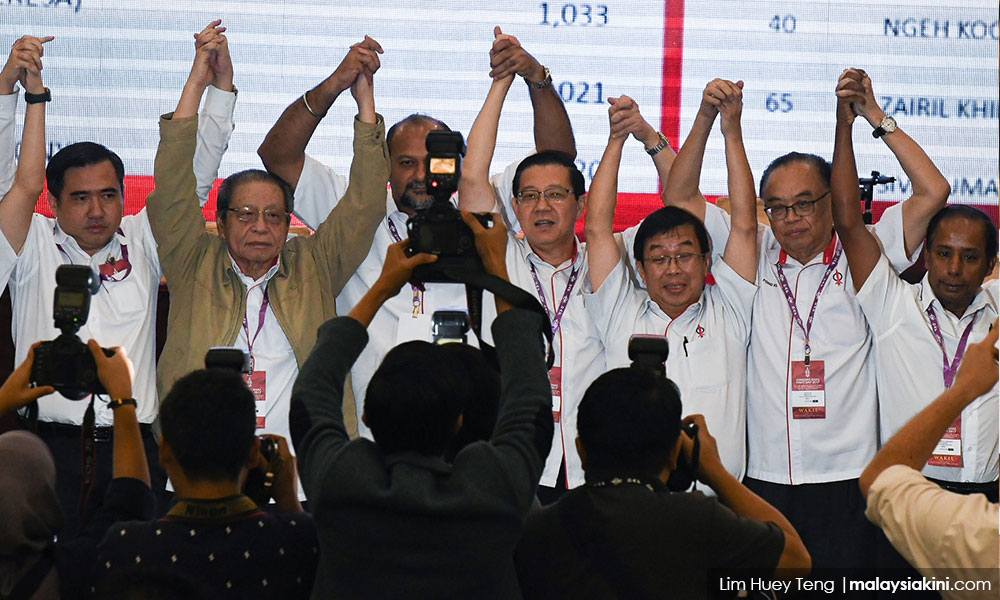
“Until capturing state power in 2008, DAP probably wanted a small government more than a benign powerful government,” said Wong.
He indeed cites Liew who characterised the old DAP as a party of “lawyers and hawkers”, with the former defending the latter from being harassed and having their rights encroached on by the state.
If compared with parties in the UK, DAP has looked more like the centrist Liberal Democrats than the centre-left Labour, said Wong.
So the question remains - can DAP evolve from its Chinese-majority leadership, be more grounded in social democracy and even collaborate with long-time foes Umno without looking like MCA 2.0?
“DAP has deliberately groomed many Malay leaders and fielded many Malay candidates since the 1970s. In 2018, DAP fielded Malay candidates in winnable seats in Penang, Selangor, Pahang, Perak, Malacca and Johor and appointed Malay excos in Penang, Perak, Johor and Malacca,” he said.
READ MORE: Chin Huat chat #2: Umno, PAS, Bersatu like three brothers after same girl
Just yesterday, veteran DAP leader Lim Kit Siang was prompted to issue a defensive statement on this issue in which he named the party’s Malay MPs and state assemblypersons through the years including Ahmad Nor, Ariff Sabri Abdul Aziz, Zairil Khir Johari (Penang state exco), Tengku Zulpuri Shah Raja Puji (former deputy minister for water, land and natural resources), Ariffin Omar, Syerleena Abdul Rashid, Abdul Aziz Bari (Perak opposition leader), Young Syefura Othman, Sheikh Umar Bagharib Ali (former Johor exco), Fadzlan Yahya, Mohd Salleh Nakhoda Itam, Daeng Ibrahim and Hassan Ahmad.
He indeed cites Liew who characterised the old DAP as a party of “lawyers and hawkers”, with the former defending the latter from being harassed and having their rights encroached on by the state.
If compared with parties in the UK, DAP has looked more like the centrist Liberal Democrats than the centre-left Labour, said Wong.
So the question remains - can DAP evolve from its Chinese-majority leadership, be more grounded in social democracy and even collaborate with long-time foes Umno without looking like MCA 2.0?
“DAP has deliberately groomed many Malay leaders and fielded many Malay candidates since the 1970s. In 2018, DAP fielded Malay candidates in winnable seats in Penang, Selangor, Pahang, Perak, Malacca and Johor and appointed Malay excos in Penang, Perak, Johor and Malacca,” he said.
READ MORE: Chin Huat chat #2: Umno, PAS, Bersatu like three brothers after same girl
Just yesterday, veteran DAP leader Lim Kit Siang was prompted to issue a defensive statement on this issue in which he named the party’s Malay MPs and state assemblypersons through the years including Ahmad Nor, Ariff Sabri Abdul Aziz, Zairil Khir Johari (Penang state exco), Tengku Zulpuri Shah Raja Puji (former deputy minister for water, land and natural resources), Ariffin Omar, Syerleena Abdul Rashid, Abdul Aziz Bari (Perak opposition leader), Young Syefura Othman, Sheikh Umar Bagharib Ali (former Johor exco), Fadzlan Yahya, Mohd Salleh Nakhoda Itam, Daeng Ibrahim and Hassan Ahmad.
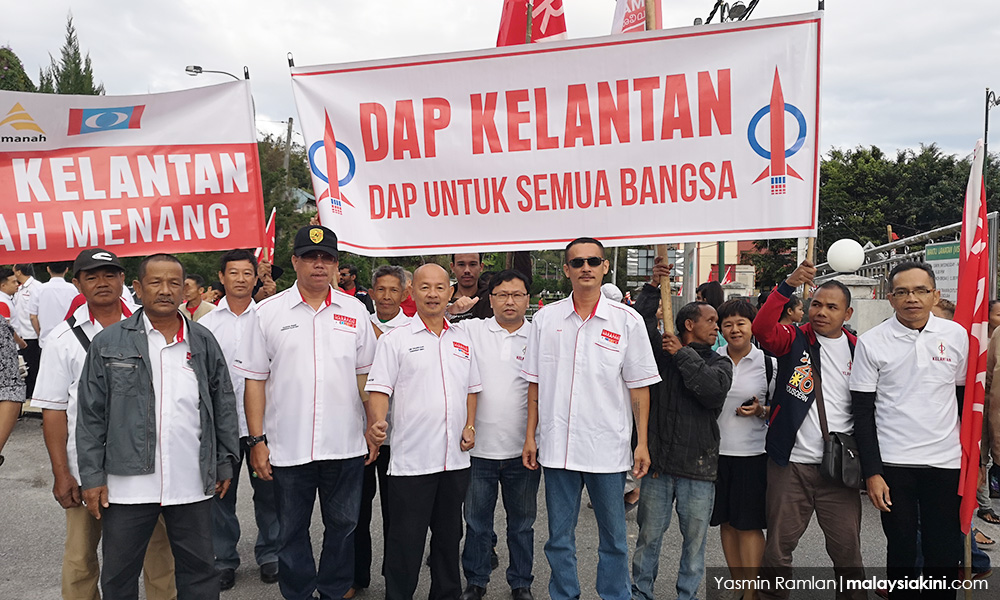
“The DAP had right from its formation in 1966 been committed to a multi-racial, multi-lingual, multi-religious and multi-cultural Malaysian objective and had never been against any race, religion or the monarchical system in Malaysia. We want every person in Malaysia, whether Malay, Chinese, Indian, Kadazan or Iban to have a Malaysian consciousness, identity and objective,” said Lim.
However, despite its rhetoric, only a handful of its national leadership is non-Chinese. What’s more damning are occasions like the Teluk Intan by-election in 2014 when voters overturned the 7,313-majority DAP obtained in the general election when the party fielded a Malay candidate, Dyana Sofya Mohd Daud, to replace a deceased Chinese MP.
A lower voter turnout was one factor, but so was the reality that at least some of DAP’s core support are voting along racial lines.
Wong says DAP’s leaders must be aware of this conundrum.
“To have more non-Chinese leaders, DAP needs to have more non-Chinese members as well but when Liew proposed in 2014 the goal of having 50 percent Malay members, it caused some unease as DAP’s Chinese grassroots feared losing their party to others.
Nonetheless, Wong believes that in the long run, given the demographic shift, a more diverse membership is inevitable for DAP.
“For that same reason, I think DAP would need to talk more about social democracy because that would allow it to reach out to working-class Malays than liberalism.
“Some DAP politicians like Anthony Loke and Chow Kon Yeow emphasise ideas like public transportation and gender inclusion in their administration even though they don’t talk much about social democracy.
However, despite its rhetoric, only a handful of its national leadership is non-Chinese. What’s more damning are occasions like the Teluk Intan by-election in 2014 when voters overturned the 7,313-majority DAP obtained in the general election when the party fielded a Malay candidate, Dyana Sofya Mohd Daud, to replace a deceased Chinese MP.
A lower voter turnout was one factor, but so was the reality that at least some of DAP’s core support are voting along racial lines.
Wong says DAP’s leaders must be aware of this conundrum.
“To have more non-Chinese leaders, DAP needs to have more non-Chinese members as well but when Liew proposed in 2014 the goal of having 50 percent Malay members, it caused some unease as DAP’s Chinese grassroots feared losing their party to others.
Nonetheless, Wong believes that in the long run, given the demographic shift, a more diverse membership is inevitable for DAP.
“For that same reason, I think DAP would need to talk more about social democracy because that would allow it to reach out to working-class Malays than liberalism.
“Some DAP politicians like Anthony Loke and Chow Kon Yeow emphasise ideas like public transportation and gender inclusion in their administration even though they don’t talk much about social democracy.
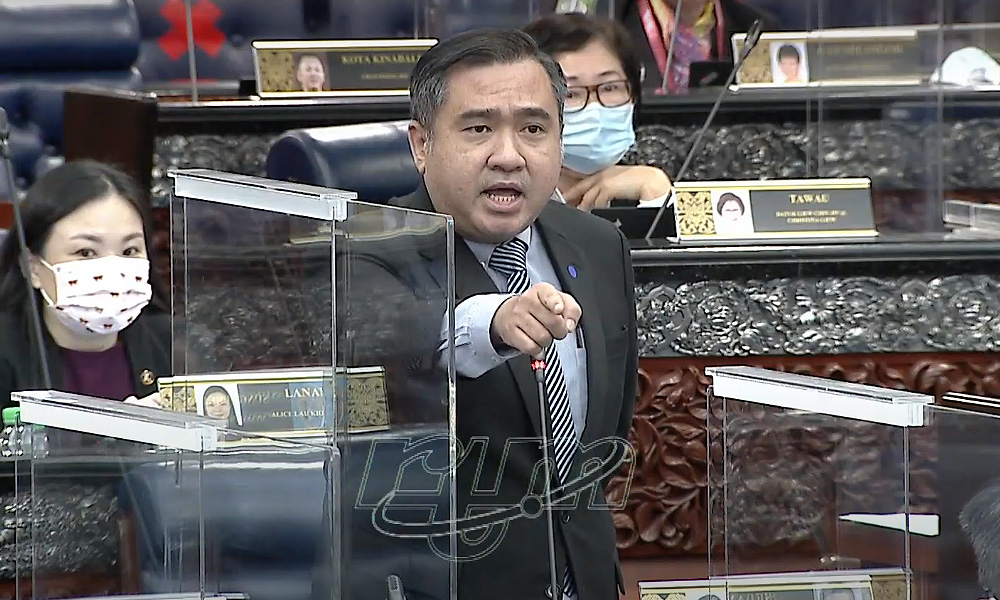
Anthony Loke
He feels DAP’s bigger challenge is how to be an accommodative government partner without being seen as a traitor for its base.
“Its past success was much built on framing in black-and-white terms MCA’s performance as Umno's over-accommodative partner and the Chinese’s unfaithful representative. After 2018, DAP realises that it cannot implement changes it wants - recognition of the UEC (Unified Examination Certificate), for example - with just the consent of its Malay partners as written in the Pakatan Harapan manifesto.
“Instead, fundamental changes, especially those framed in identity terms, can only happen when some cross-communal consensus emerges. In other words, for UEC to be recognised, more than just DAP lobbying Bersatu, it requires the Chinese lobbying the Malays at the societal level.
“Such reality is hard to swallow for many Chinese supporters of DAP – not unlike many other Malaysians – who conventionally overestimate politicians’ ability and read politicians’ failure as a betrayal.
Wong believes that with the end of the “two-coalition politics” and fluid post-election coalitions becoming the norm, the DAP core is coming to terms with the idea that politics is not black and white, but they – rightly – reject “anything goes” opportunism.
“They still want some principled commitment to strategic manoeuvring. The CSA (Confidence and Supply Agreement) moved by DAP/Harapan in Perak and Johor is the right direction for the emergence of professionalised politics.
“To balance between principled-ness and flexibility, DAP is likely to be more professional about its manifesto and election promises – what they can realistically deliver, what they want in the best scenario and what they can compromise in government formation."
PAS’ Taliban threat a reality?
While DAP has consistently claimed that it is being demonised as an anti-Malay party, its own leaders have not been afraid to call former allies PAS out on its push for an Islamic state, often suggesting that an era of Taliban-inspired state repression will follow if PAS becomes stronger.
Does Wong believe it to be valid – the fear of Malaysian moderates and liberals that if PAS wins big in GE15, they will turn us into a repressive, backward and violent country?
“The biggest threat to religious freedom and multiculturalism is not opportunistic politicians who use religion to fish votes, but politicians, bureaucrats and judges who are ideologically committed to construct the supremacy of Islam, Muslims or both.
“Opportunistic politicians will adjust their positions and move in response to circumstances. This is best illustrated by Tuan Ibrahim Tuan Man's frank admission on PAS' change of stand on RUU355.
“In short, a party has less the need to be a drama queen when in government than in opposition,” he said.
“Its past success was much built on framing in black-and-white terms MCA’s performance as Umno's over-accommodative partner and the Chinese’s unfaithful representative. After 2018, DAP realises that it cannot implement changes it wants - recognition of the UEC (Unified Examination Certificate), for example - with just the consent of its Malay partners as written in the Pakatan Harapan manifesto.
“Instead, fundamental changes, especially those framed in identity terms, can only happen when some cross-communal consensus emerges. In other words, for UEC to be recognised, more than just DAP lobbying Bersatu, it requires the Chinese lobbying the Malays at the societal level.
“Such reality is hard to swallow for many Chinese supporters of DAP – not unlike many other Malaysians – who conventionally overestimate politicians’ ability and read politicians’ failure as a betrayal.
Wong believes that with the end of the “two-coalition politics” and fluid post-election coalitions becoming the norm, the DAP core is coming to terms with the idea that politics is not black and white, but they – rightly – reject “anything goes” opportunism.
“They still want some principled commitment to strategic manoeuvring. The CSA (Confidence and Supply Agreement) moved by DAP/Harapan in Perak and Johor is the right direction for the emergence of professionalised politics.
“To balance between principled-ness and flexibility, DAP is likely to be more professional about its manifesto and election promises – what they can realistically deliver, what they want in the best scenario and what they can compromise in government formation."
PAS’ Taliban threat a reality?
While DAP has consistently claimed that it is being demonised as an anti-Malay party, its own leaders have not been afraid to call former allies PAS out on its push for an Islamic state, often suggesting that an era of Taliban-inspired state repression will follow if PAS becomes stronger.
Does Wong believe it to be valid – the fear of Malaysian moderates and liberals that if PAS wins big in GE15, they will turn us into a repressive, backward and violent country?
“The biggest threat to religious freedom and multiculturalism is not opportunistic politicians who use religion to fish votes, but politicians, bureaucrats and judges who are ideologically committed to construct the supremacy of Islam, Muslims or both.
“Opportunistic politicians will adjust their positions and move in response to circumstances. This is best illustrated by Tuan Ibrahim Tuan Man's frank admission on PAS' change of stand on RUU355.
“In short, a party has less the need to be a drama queen when in government than in opposition,” he said.
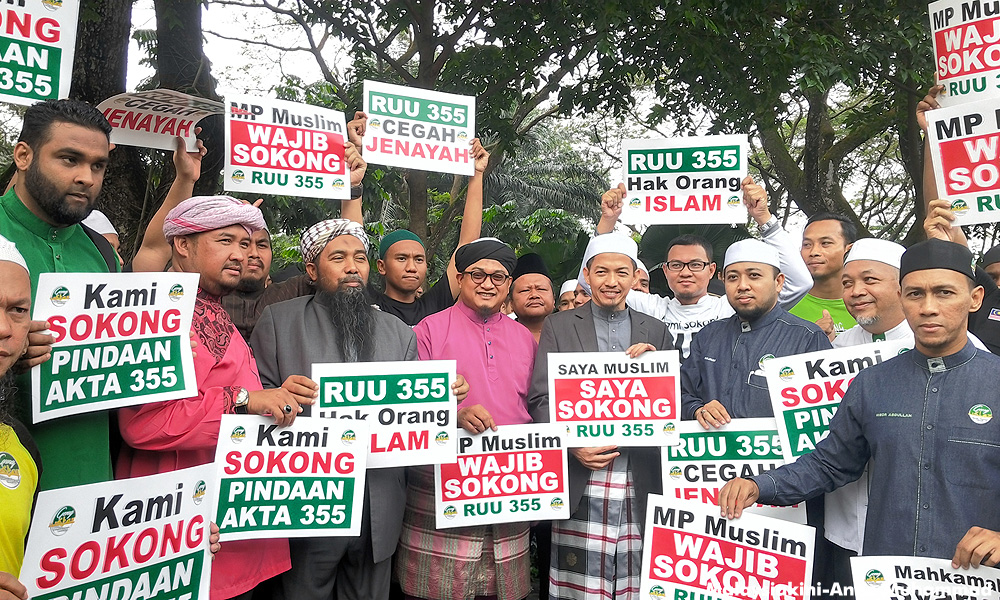
He added that it was ironic that PAS was getting a taste of the same medicine that hurt DAP.
“Forced moderation when in government has hurt DAP's standing in its core Chinese constituency to the extent that it was derogatorily dubbed the “diam-diam party”.
“PAS is now experiencing this DAP-isation process. Its moral standing has also been eroded by its partisan defence of erring ministers and ulama. All these may hurt PAS in some marginal constituencies in GE15, especially if it still has to face both Umno and Harapan.
“This, however, is not cheerful news for supporters of religious freedom and multiculturalism,” he warned, saying that the Islamist party is likely to find other ways to fight its battles.
“First, PAS may simply signal its commitment to Muslim dominance by finding safe targets like alcohol sale and Hindu temples with dubious registration status.
“Second, other Malay politicians are jumping in to fill PAS' vacuum. Pejuang’s Jeram representative (Mohd Shaid Rosli) succeeded in forcing a grocery in Puncak Alam to shut down its non-halal section and its party leadership from Mahathir downward has responded with a deafening silence.
“And many activists of Amanah - the target of PAS' slamming for being moderate - are now repaying the favour on PAS' softening.
“Third, free from electoral consideration, unelected politicians and bureaucrats are also happy to be the champion,” said Wong, referring to Religious Affairs Minister Zulkifli Mohamad who expressed his hope for the controversial amendments that would allow harsher punishments for syariah criminal offences to be realised before his death. Recently, Jakim also causes a stir over restricting halal-certified bakeries on the use of "Merry Christmas".
Wong said that instead of slamming PAS and its base, the advocates of multiculturalism and religious freedom should try different methods to get their message across.
“Framing secularism based on Nusantara instead of European stylings - they can popularise discourses on Indonesia's Pancasila and Islam Nusantara. More discourses on diversity and human rights should also be carried out in Bahasa Malaysia and not primarily in English.
“They should also talk more about the plight of the Malay working-class who often feel that English-speaking liberals don't care about them and instead find PAS or some religious leaders more caring."
Wong admitted that for this to work, liberals need to think more like politicians. “In a democracy, you often have to care for others before others care about you,” he said.
Chin Huat chat #1: Dr M wanted presidential power until dying day
Chin Huat chat #2: Umno, PAS, Bersatu like three brothers after same girl
“Forced moderation when in government has hurt DAP's standing in its core Chinese constituency to the extent that it was derogatorily dubbed the “diam-diam party”.
“PAS is now experiencing this DAP-isation process. Its moral standing has also been eroded by its partisan defence of erring ministers and ulama. All these may hurt PAS in some marginal constituencies in GE15, especially if it still has to face both Umno and Harapan.
“This, however, is not cheerful news for supporters of religious freedom and multiculturalism,” he warned, saying that the Islamist party is likely to find other ways to fight its battles.
“First, PAS may simply signal its commitment to Muslim dominance by finding safe targets like alcohol sale and Hindu temples with dubious registration status.
“Second, other Malay politicians are jumping in to fill PAS' vacuum. Pejuang’s Jeram representative (Mohd Shaid Rosli) succeeded in forcing a grocery in Puncak Alam to shut down its non-halal section and its party leadership from Mahathir downward has responded with a deafening silence.
“And many activists of Amanah - the target of PAS' slamming for being moderate - are now repaying the favour on PAS' softening.
“Third, free from electoral consideration, unelected politicians and bureaucrats are also happy to be the champion,” said Wong, referring to Religious Affairs Minister Zulkifli Mohamad who expressed his hope for the controversial amendments that would allow harsher punishments for syariah criminal offences to be realised before his death. Recently, Jakim also causes a stir over restricting halal-certified bakeries on the use of "Merry Christmas".
Wong said that instead of slamming PAS and its base, the advocates of multiculturalism and religious freedom should try different methods to get their message across.
“Framing secularism based on Nusantara instead of European stylings - they can popularise discourses on Indonesia's Pancasila and Islam Nusantara. More discourses on diversity and human rights should also be carried out in Bahasa Malaysia and not primarily in English.
“They should also talk more about the plight of the Malay working-class who often feel that English-speaking liberals don't care about them and instead find PAS or some religious leaders more caring."
Wong admitted that for this to work, liberals need to think more like politicians. “In a democracy, you often have to care for others before others care about you,” he said.
Chin Huat chat #1: Dr M wanted presidential power until dying day
Chin Huat chat #2: Umno, PAS, Bersatu like three brothers after same girl
I have many times been told by non-Chinese DAP loyalists that, while they are committed to DAP's stated policies, they now and then really feel out of place at DAP functions.
ReplyDeleteThese functions are often extremely Chinese in outlook , and make little effort to accommodate non-Chinese supporters.
That is why it is so easy and so effective for UMNO to demonise DAP as a Chinese chauvinist party.
I dun know why aspiring Malay politicians who want power, position, money etc rebut-rebut join UMNO, Bersatu, PAS, Pejuang etc. It is dog-eat-dog treachery in these parties. For easy success just join DAP. You will be immediately feted and given party positions, nominated for elections etc. Immediate fame. And when DAP are back in gomen you will become Minister, Deputy etc.
ReplyDeleteSo Syed Saddiq, why waste precious years trying to launch Muda. Just join DAP, see how many young leaders they have already groomed, ready to take over....ha ha ha....
That's the core of the multitudes of melayu turncoats within DAP.
DeleteMany desperados melayu politikus of sub par level r using the eagerness of DAP leadership to project multiculturalism, especially to remove the tagged malay negativism, to gain power mileages in achieving political careers that they would never be able to attain outside the DAP patronage!
DAP top leadership can't escape the blame for this pitfall.
But true melayu, devoid of ketuanan imprinted narratives, r one in a million find. Most of the time, when push turns shovel + monetary & alifbata incentives these mfers WILL toe the line of their meme-ed racial outlooks.
That f*cked DR speaker is just one of the latest example!
So don't expect too much about liberal melayu just now.